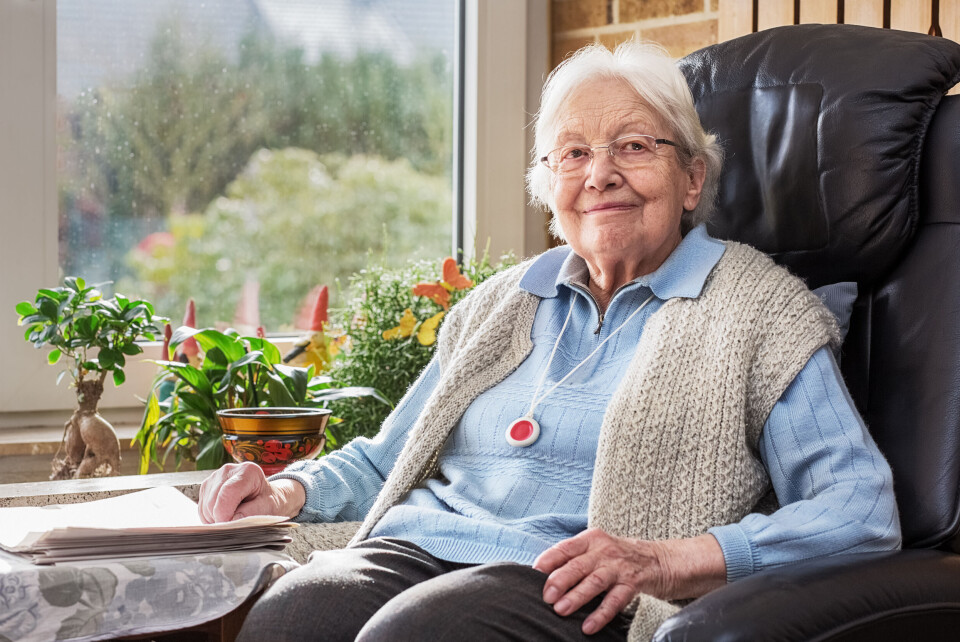-
France’s wild garlic season is here – but foragers should beware toxic lookalikes
Spring brings the fragrant plant to woodlands nationwide. We explain what to look out for
-
Record river levels, more evacuations: Latest on flooding in south-west France
Alerts are in place across five departments and residents in some areas are told to stay home
-
French second-home visa issues raised in House of Lords
British people experience an "expensive and bureaucratic process" to continue living in France
France launches plan to protect elderly from dangerous falls
The aim is to reduce the risk, adapt homes, offer assistance and boost preventative physical activity. More than 10,000 elderly people die in France each year due to falls

A plan to reduce severe falls among elderly people has been launched in France by two ministers. More than 10,000 elderly people die from fall-related issues each year, and 100,000 are hospitalised.
Bad falls are one of the leading causes of death among people aged 65 and over in France, and public spending authority la Cour des Comptes estimates that the national cost is €2billion per year including €1.5billion in Assurance Maladie costs.
The death rate is three times higher than that of car accidents, and the problem has been judged to be getting worse due to France’s ageing population. There will be 50% more people aged 75 to 84 by 2030 than there are now.
Autonomy Minister Brigitte Bourguignon and Sports Minister Roxana Maracineanu were yesterday (February 22) in Toulouse to launch a new plan to combat the issue, with a view to reducing falls by 20% by 2024.
At the Hôtel-Dieu, ministers celebrated the work of Professor Bruno Vellas, head of geriatrics at the CHU hospital in Toulouse and considered a “pioneer” of the field by the World Health Organization.
Professor Vellas is also the founder of elderly quality of life group Gérontopôle, and the instigator of the new project, dubbed Inspire. It aims to encourage healthy ageing, and study the process of how elderly people lose their autonomy further in advance, in a bid to prevent them from reaching the point where a bad fall is a risk.
Ms Bourgignon said: “It’s not a coincidence that I’m in Toulouse today, where all of these professionals are doing remarkable work with regards to elderly people.”
She called the prevention of bad falls among the elderly a “crucial public health challenge that has, until now, happened in silence. We are here to change things together and bring the subject into the open”.
The plan will focus on five priorities:
-
Knowing how to spot the risk of falls and how to warn: informing health professionals, the elderly and their carers about the risk of falling
-
Adapting homes to avoid the risk of falls with the introduction of "Ma Prime Adapt'" financial aid programme
-
Technical aids for mobility made for all: creation of specific post-hospitalisation rehabilitation modules
-
Increased physical activity, which the minister called “the best anti-fall weapon”: orientation towards sports programmes adapted to the needs of the elderly;
-
At-home teleassistance for all.
‘Years of independence’
Ms Maracineanu said: "We are here to show that health and sports work hand in hand to improve preventative health. Inserting adapted physical activities into a health pathway means gaining years of independence.”
At-home monitoring and teleassistance are already available to everyone in the Haute-Garonne department, where the launch took place.
Yet, Ms Bourgignon said she wanted to extend them to the entire country, with financial assistance from independence fund la Caisse nationale de solidarité pour l’autonomie, regional health agencies les Agences régionales de santé, departmental councils, and elderly independence associations.
Related articles
France pledges €240m for struggling at-home elderly care services
Help in France for people caring for relatives?
French city has students living in elderly care homes
Why growing older in France is getting more expensive
























